Alkaline diet valid or fad
It seems there is always another new diet trend or fad popping up everywhere you look. It’s worse when every man and his dog has an opinion to share about how each one is the best thing since sliced bread or complete and utter rubbish. From Keto to Paleo, Vegan to FODMAP, Gluten Free to Fruitarian, the list is never-ending. It is easy to see how, with so much going on around you, and so many individual opinions floating around, its easy to get lost in a world of hearsay and misconceptions.
One of these recent trendy words is alkalising, and frankly, it is a word used far too liberally and subsequently scorned at by the scientific community. In truth, that scorn is rightfully so, as it is often touted that an alkaline diet or alkalising product will “alkalise your body’s pH” or “alkalise the pH of your blood”, which is in fact, unlikely something you would even want to happen when you consider the physiology of the human body and why it needs to tightly regulate its pH within strict ranges.
It is my belief, however, that the true purpose of an alkaline diet has been misconstrued at some point and subsequently, the well-meaning grapevine has perpetuated inaccurate information, resulting in a fabricated and disjointed perception of this potentially great dietary trend. I truly believe that whilst the current scientific scorn is warranted, it is only warranted when aimed at the advocated hype based on the collective bodies’ pH or when the term is used to portray state of the blood as highly alkaline. I believe, what has been lost from the meaning of an alkaline diet, is the idea that it is actually meaning to support your body to maintain its own natural and optimal pH ranges, and at most, a slightly alkaline state of the blood.
An alkaline diet focuses on those foods deemed alkaline (after digestion), with the classification based on the availability of key nutrients within the food. Alkaline foods are generally rich in magnesium, calcium and potassium, whilst being optimally balanced with a lower level of both protein and phosphorous. Mathematically, this calculation is called the potential renal acid load (PRAL) value of the food, subsequently resulting in foods being scaled to either alkaline or acidifying after digestion. These buffering minerals are important, as day to day bodily functions put pressure on the blood to maintain its pH, which it manages wonderfully by several mechanisms, one of which is the use of buffering minerals, like calcium, potassium and magnesium. If the diet is unable to provide adequate levels of these buffers, the body will quite cleverly turn to its own reserves, particularly those stored in bones and muscles, to ensure the blood pH does not fall outside its required range, which would equal acidosis and subsequently death. Hence my belief that the negativity around alkalising is relative to the misconception of alkalising the blood as opposed to supporting the body to do its own alkalising. By providing the body with the tools it needs, it would not need to steal the key minerals from other areas of itself.
It is also important to note that when discussing an alkaline diet, it is not about the pH of the food in its raw or cooked state, it is referring to the alkaline or acidic ash that remains after digestion. In this sense, a lemon, which is fundamentally acidic, is actually alkaline forming after digestion. With this in mind, please remember that the stomach needs to be acidic, so consuming something like sodium bicarbonate or protein claiming to be alkaline, may be alkaline in its raw form, but not necessarily alkaline after digestion, and in fact, in high doses, could be detrimental to the stomach pH, which can decrease nutrient absorption and potentially provide an opening for opportunistic pathogens.
As a trend, when you think about it, the alkaline diet, is, in fact, a fantastic way to essentially promote, a wholesome and healthy, anti-inflammatory diet. The fundamental concept of an Alkaline Diet is to choose foods considered alkaline forming, particularly vegetables (especially leafy greens) and fruits, and limiting the amount of consumption of highly acid-forming foods such as dairy, meats and highly refined foods. As you can see, the basic concepts of an alkaline diet are really something most individuals should be considering when modifying their diet; to increase wholefoods, fruits and vegetables, and reduce inflammatory and refined foods. The nutrient and phytonutrient benefits alone of an “alkaline diet” are far greater than that of the typical western diet today.
The misconceptions of an alkaline diet are just another example of why it is important to find a reliable source of information or a qualified practitioner who can guide you to make appropriate dietary choices suitable to your own lifestyle and health needs, rather than relying on hearsay or hype.

